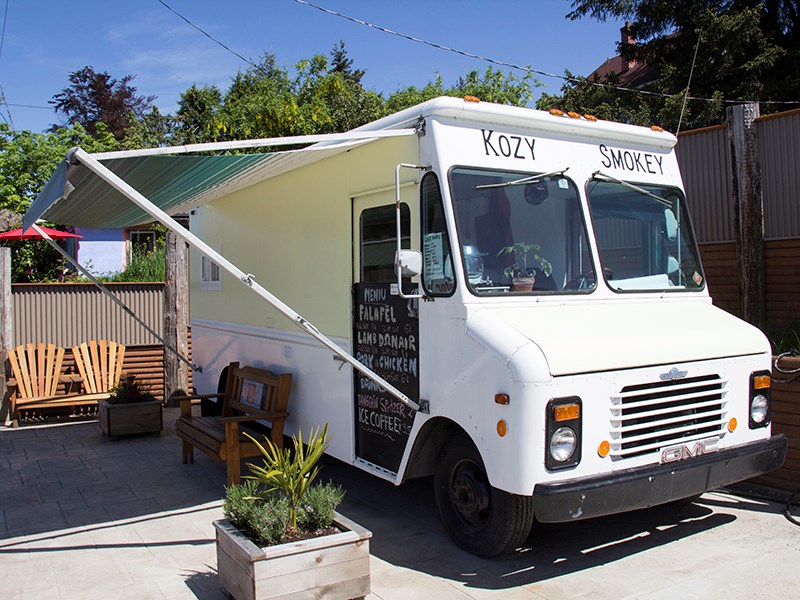Food trucks might be trendy in big cities, but the verdict is still out on whether it is a viable business model for Powell River.
Only one visible food truck, the seasonal Kozy Smokey on Marine Avenue, has been in regular business in the past year. Parked on the owner’s private property, the business does not have to pay for a food-vending permit.
With some food trucks and carts in the works and others already out of business, the idea of mobile restaurants has not caught on yet.
Local entrepreneur Jeff Rowley opened a food truck called Hefe’s for about five weeks last year outside of Valley Building Supplies, then promptly closed it down and sold his truck. He does not expect food trucks to be a trend in Powell River anytime soon. “I would say that if people looked into it enough they would find there is not enough traffic here,” said Rowley.
According to Janice Gunn, City of Powell River development clerk, no permits for food trucks have been issued this year, although some enquiries have been made.
Gunn said the cost involved is relatively high. First, a business licence has to be purchased and then a $200 per month or $600 per year food-vending permit. A permit allows the food vendor to park on spots identified for those businesses; no other locations are allowed within city limits.
“The rationale behind that is to make it fair to the businesses in the area that are now your competition; you have to pay more,” said Gunn. “To allow somebody to set up right next to a restaurant selling food, is that fair?”
In his brief experience operating a food truck, Rowley said finding somewhere to park was one of the big problems. “To get a place that actually has traffic and you’re allowed to park at is really hard,” he said.
Rowley thought the ideal location would be at the intersection of Wharf Street and Marine Avenue, near the ferry terminal where people wait to board. He said it is the only place that would get enough traffic to make it a viable business.
According to Gunn, the city allows food vendors to park on a first-come, first-serve basis. Eight locations are allowed for street vending, which includes food trucks and carts. Under the city zoning bylaw for street vending, food trucks cannot be parked and left overnight.
“I could picture it being pretty crazy if it got going and took off,” said Rowley. “I can see there being issues with it, for sure. You’d be fighting for the hotspot in town.”
In Townsite, The Old Courthouse Inn plans to open a poutine-themed food cart on its property June 1. Much smaller than a truck, advantages of food carts include the smaller size, less expense to operate and easier transportation, cleaning and repair.
Old Courthouse co-owner JP Brosseau worked on a food truck in Vancouver and said he is optimistic his cart can be sustainable, at least through the warm months.
If local building projects such as Sino Bright School move forward, Brosseau said there is an opportunity for food trucks.
“I know you can make quite a bit of money,” said Brosseau. “It’s a matter of someone taking it on, buying a truck and filling it up with food.”
Just because food trucks are a phenomena in large cities such as Vancouver, that is not necessarily the case in Powell River, according to Rowley.
“I think there’s a bit of a misconception,” he said. “By the time you pay to park somewhere and all the repairs on the truck and upkeep, you’re not necessarily winning in any way, other than if you were going to chase festivals around.”
Knowing what he knows now about parking restrictions, the seasonal nature of the business and expenses involved, Rowley said he would not have bothered with a food truck.
“That’s why I sold mine,” he said. “I looked at the situation and thought if I could get my money back for this vehicle, I’ve learned some lessons, I’ve learned the ins and outs of it, and figured out it would not necessarily be worth it.”



